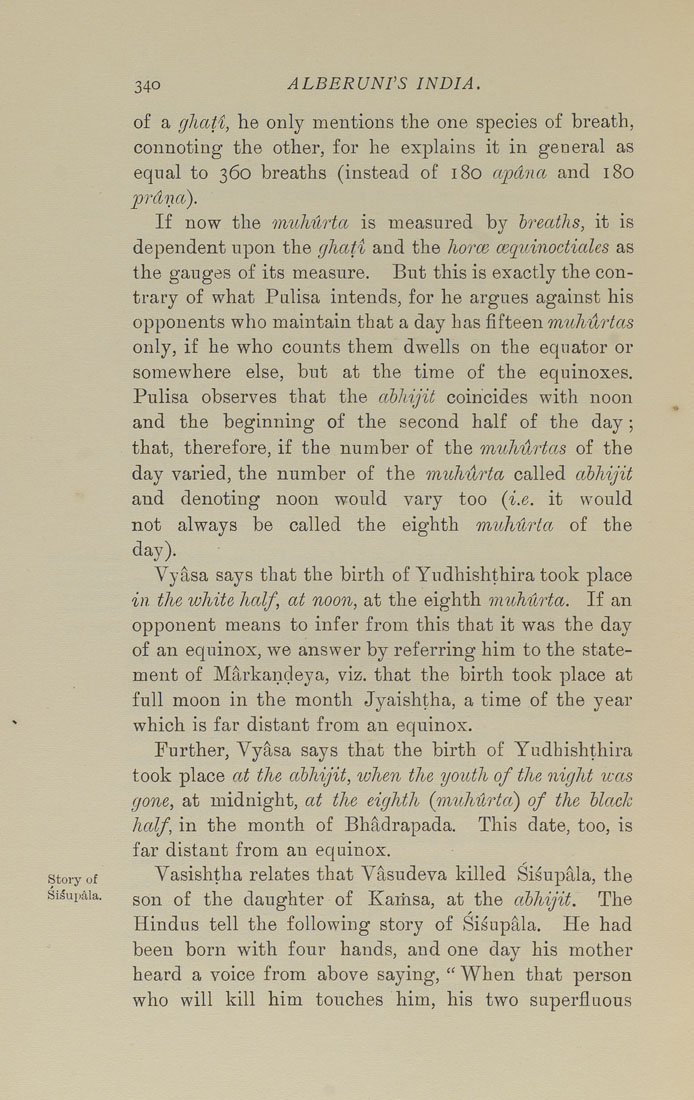Bīrūnī, Muḥammad ibn Aḥmad, Alberuni's India (v. 1)
(London : Kegan Paul, Trench, Trübner & Co., 1910.)
|
||
|
|
|
|
| Page 340 |

340 ALBERUNPS INDIA. of a ghati, he only mentions the one species of breath, connoting the other, for he explains it in general as equal to 360 breaths (instead of 180 apdna and 180 prdna). If now the muhitrta is measured by breaths, it is dependent upon the ghati and the horoi cequinoctiales as the gauges of its measure. But this is exactly the con¬ trary of what Pulisa intends, for he argues against his opponents who maintain that a day has fifteen muhdrtas only, if he who counts them dwells on the equator or somewhere else, but at the time of the equinoxes. Pulisa observes that the ahliijit coincides with noon and the beginning of the second half of the day; that, therefore, if the number of the muhilrtas of the day varied, the number of the muhvbrta called abhijit and denoting noon would vary too (i.e. it would not always be called the eighth muhurta of the day). Vyasa says that the birth of Yudhishthira took place in the white half, at noon, at the eighth muhurta. If an opponent means to infer from this that it was the day of an equinox, we answer by referring him to the state¬ ment of Markandeya, viz. that the birth took place at full moon in the month Jyaishtha, a time of the year which is far distant from an equinox. Further, Vyasa says that the birth of Yudhishthira took place at the abhijit, when the youth of the night was gone, at midnight, at the eighth (muhuoda) of the black half, in the month of Bhadrapada. This date, too, is far distant from an equinox. story of Vasishtha relates that Vasudeva killed Sisupala, the siiupaia. ^q^ pf ^]^q daughter of Kaihsa, at the abhijit. The Hindus tell the following story of Sisupala. He had been born with four hands, and one day his mother heard a voice from above saying, " When that person who will kill him touches him, his two superfluous |
| Page 340 |







